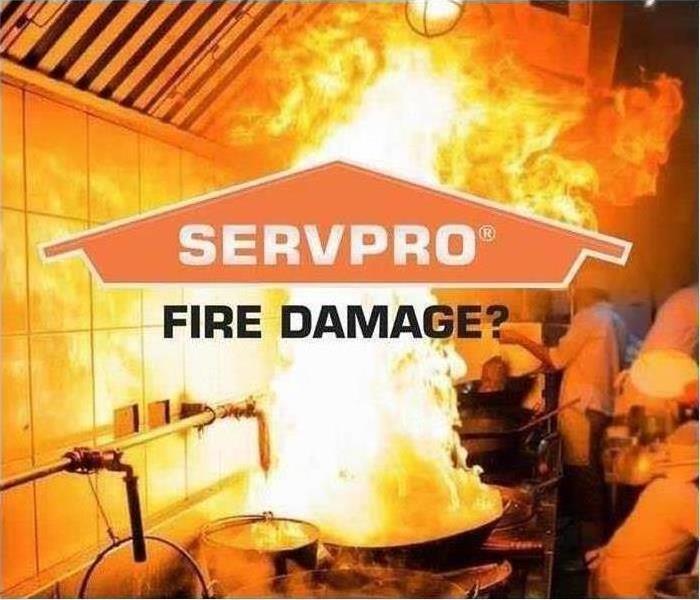Kitchen Fire
5/11/2020 (Permalink)
Having a kitchen full of friends and family adds to the joy of any dinner party, yet it can also be a distraction leading to disaster. According to the National Fire Protection Association (NFPA) there were 1,730 home cooking fires started in 2014 on Thanksgiving Day. Lorraine Carli, NFPA’s vice president of Outreach and Advocacy says, “People are preparing multiple dishes for many guests and there can be plenty of distractions in the home, which can make it all too easy to forget what’s on the stove. That’s when cooking mishaps are most likely to occur.”
Here are some tips to reduce the risk of cooking fires.
- Be on alert! If you are sleepy or have consumed alcohol don’t use the stove or stove top.
- Stay in the kitchen while you are frying, grilling, boiling or broiling food.
- If you are simmering, baking or roasting food, check it regularly. Using a timer may help you to do this more often. Remain in the kitchen while food is cooking.
- Keep anything that can catch fire — oven mitts, wooden utensils, food packaging, towels or curtains — away from your stove top.
What To Do If A Fire Starts
- Just get out! When you leave, close the door behind you to help contain the fire.
- Call 9-1-1 or the local emergency number after you leave.
- If you try to fight the fire, be sure others are getting out and you have a clear path to exit your residence.
- Keep a lid nearby when you’re cooking to smother small grease fires. Smother the fire by sliding the lid over the pan and turn off the stove top. Leave the pan covered until it is completely cooled.
- For an oven fire, turn off the heat and keep the door closed.
Safety considerations for cooking with oil
Oil is a key ingredient found in the majority of today’s kitchens. Whether a recipe calls for frying or sauteing, we include oil in almost all of our daily cooking. When using any of the many oils to prepare your meals--like olive, canola, corn or soybean-- consider the following safety tips when cooking:
- Always stay in the kitchen when frying on the stove top.
- Keep an eye on what you fry. If you see wisps of smoke or the oil smells, immediately turn off the burner and/or carefully remove the pan from the burner. Smoke is a danger sign that the oil is too hot.
- Heat the oil slowly to the temperature you need for frying or sauteing.
- Add food gently to the pot or pan so the oil does not splatter.
- Always cook with a lid beside your pan. If you have a fire, slide the lid over the pan and turn off the burner. Do not remove the cover because the fire could start again. Let the pan cool for a long time. Never throw water or use a fire extinguisher on the fire.
- If the fire does not go out or you don’t feel comfortable sliding a lid over the pan, get everyone out of your home. Call the fire department from outside.

 24/7 Emergency Service
24/7 Emergency Service
